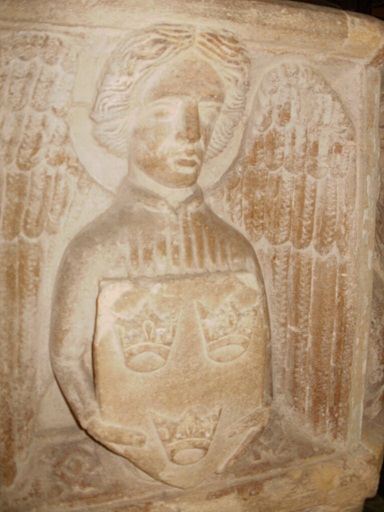|
Bernard Collins
Bernard Abdy Collins (17 February 1880 – 22 October 1951) was a British administrator in India and English first-class cricketer. Collins was born at Saxmundham in February 1880 to Henry Abdy Collins and his wife, Florence Ellen Cartwright. He was educated at Malvern College, before going up to Brasenose College, Oxford. While studying at Oxford, he made a single appearance in first-class cricket for Oxford University against the Marylebone Cricket Club at Oxford in 1901. Collins batted twice in the match at number eleven. He was dismissed in the Oxford first-innings and was dismissed without scoring by John Rawlin. In their second-innings he top-scored with an unbeaten 83, sharing in a last wicket partnership of 149 with Frank Hollins. In addition to playing first-class cricket, Collins also played minor counties cricket for Suffolk in 1904, making five appearances in the Minor Counties Championship. He was also the editor of 'Psychic Science' and the author of the b ... [...More Info...] [...Related Items...] OR: [Wikipedia] [Google] [Baidu] |
Saxmundham
Saxmundham ( ) is a market town in Suffolk, England, set in the valley of the River Fromus about north-east of Ipswich and west of the coast at Sizewell. The town is bypassed by the main A12 road between London and Lowestoft. The town is served by Saxmundham railway station on the East Suffolk Line between Ipswich and Lowestoft. Governance Saxmundham Town Council comes under East Suffolk District. It was previously in Suffolk Coastal District before April 2019. The district electoral ward also has the name Saxmundham. Its population at the 2011 census was 4,913. As of December 2022, Saxmundham Town Council consisted of ten councillors. Heritage The place-name Saxmundham is first attested in the Domesday Book of 1086 as ''Sasmunde(s)ham''. It appears as ''Saxmundham'' in the Feet of Fines of 1213. The name denotes "Seaxmund's village or estate". The Parish Church of St John the Baptist dates back to the 11th century. Some features remain from the medieval period, but ... [...More Info...] [...Related Items...] OR: [Wikipedia] [Google] [Baidu] |
John Rawlin
John Thomas Rawlin (10 November 1856 – 19 January 1924) was an English first-class cricketer, who played twenty seven matches for Yorkshire County Cricket Club between 1880 and 1885, and 229 matches for Middlesex between 1889 and 1909. He toured Australia with Vernon's team in 1887/89. He also played first-class games for the Marylebone Cricket Club (MCC) from 1887 to 1909. Rawlin was born in Greasbrough, near Rotherham, Yorkshire, England. A right arm fast medium bowler and right-handed batsman, Rawlin played in 315 first-class matches. He took 811 wickets at an average of 20.57, with a best of 8 for 29 against Gloucestershire. He also took 8 for 50 against his old county Yorkshire. He took ten wickets in a match on twelve occasions, and five wickets in an innings 46 times. He scored 7,651 runs at 17.04, with a best score of 122 not out against W. G. Grace's London County Cricket Club. His other century came against Surrey, and he scored thirty one fifties. ... [...More Info...] [...Related Items...] OR: [Wikipedia] [Google] [Baidu] |
Oxford University Cricketers
Oxford () is a city in England. It is the county town and only city of Oxfordshire. In 2020, its population was estimated at 151,584. It is north-west of London, south-east of Birmingham and north-east of Bristol. The city is home to the University of Oxford, the oldest university in the English-speaking world; it has buildings in every style of English architecture since late Anglo-Saxon. Oxford's industries include motor manufacturing, education, publishing, information technology and science. History The history of Oxford in England dates back to its original settlement in the Saxon period. Originally of strategic significance due to its controlling location on the upper reaches of the River Thames at its junction with the River Cherwell, the town grew in national importance during the early Norman period, and in the late 12th century became home to the fledgling University of Oxford. The city was besieged during The Anarchy in 1142. The university rose to dominat ... [...More Info...] [...Related Items...] OR: [Wikipedia] [Google] [Baidu] |

